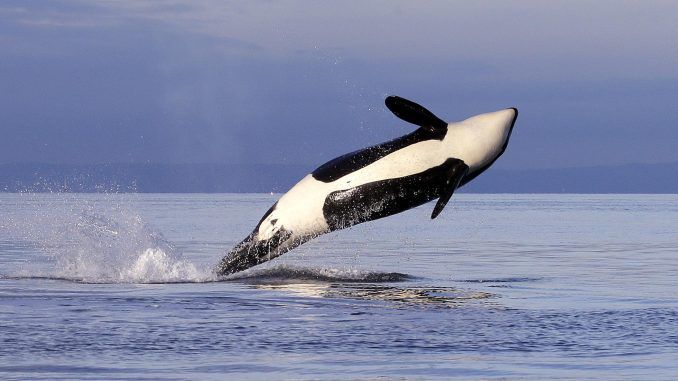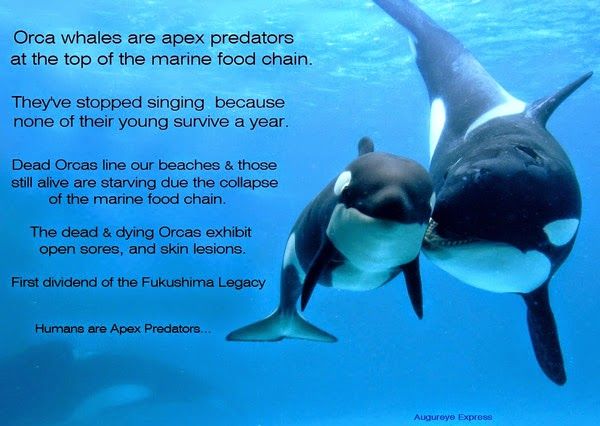
Scientists and marine biologists are concerned that there is a 100% death rate among newborn baby killer whales (ocras) along the Pacific Coast.
For decades the oceans have been slowly polluted by toxins and heavy metals as a result of the chemical waste produced by modern industrial processes.
Oil, pharmaceutical and chemical industries were the old culprits who polluted and helped man pollute the oceans. Since the tragedy of Fukushima in 2011, radiation is now killing off the oceans, starting with the Pacific.
Scientists are now finding dead pregnant orcas carrying decomposing stillborns.

BYPASS THE CENSORS
Sign up to get unfiltered news delivered straight to your inbox.
You can unsubscribe any time. By subscribing you agree to our Terms of Use
Ocras have stopped communicating with each other.
Newborn ocras have a zero chance of survival. None of them survive for more than a year.
Humans Are Free reports:
In 2008, the Scientific American reported that there were 406 dead zones — meaning there was not enough oxygen to support life — worldwide. At that time, the blame was from fertilizer and pesticide runoff.
In 2010, scientists lamented the stunning amount of toxic and heavy metals — including aluminum, chromium, titanium, mercury, silver and lead — discovered in whales that lived thousands of miles away from civilization.
According to a report by Common Dreams, these “pollutants were threatening the human food supply.”
Fast forwarding to today, five years past that fateful day in Fukushima, the struggling orca (killer whale) population is in even worse shape. Are they headed for extinction?
Natural News reports, “… the incidence of orca deaths — not just of infants, but full-grown specimens as well — has risen sharply since the accident occurred in 2011 and as the radiation has made its way across the Pacific Ocean to the West Coast of North America…
“Aside from the 100 percent mortality rate among orca infants, many of the matriarchs are dying as well, leading some to speculate that the species may become extinct — possibly within the next 20 years.
“The discovery of an orca carcass off the coast of British Columbia — that of a 19-year-old orca female, which was believed to be in the late stages of pregnancy, is just one example of the recent orca deaths that have scientists and conservationists worried. . .
“Ken Balcomb, executive director of the Center For Whale Research in Friday Harbor, Washington, said: ‘We haven’t had any survivals in babies for a couple of years. We have had stillborns and newborns die… It’s like zero survival in birth rate here.’”


